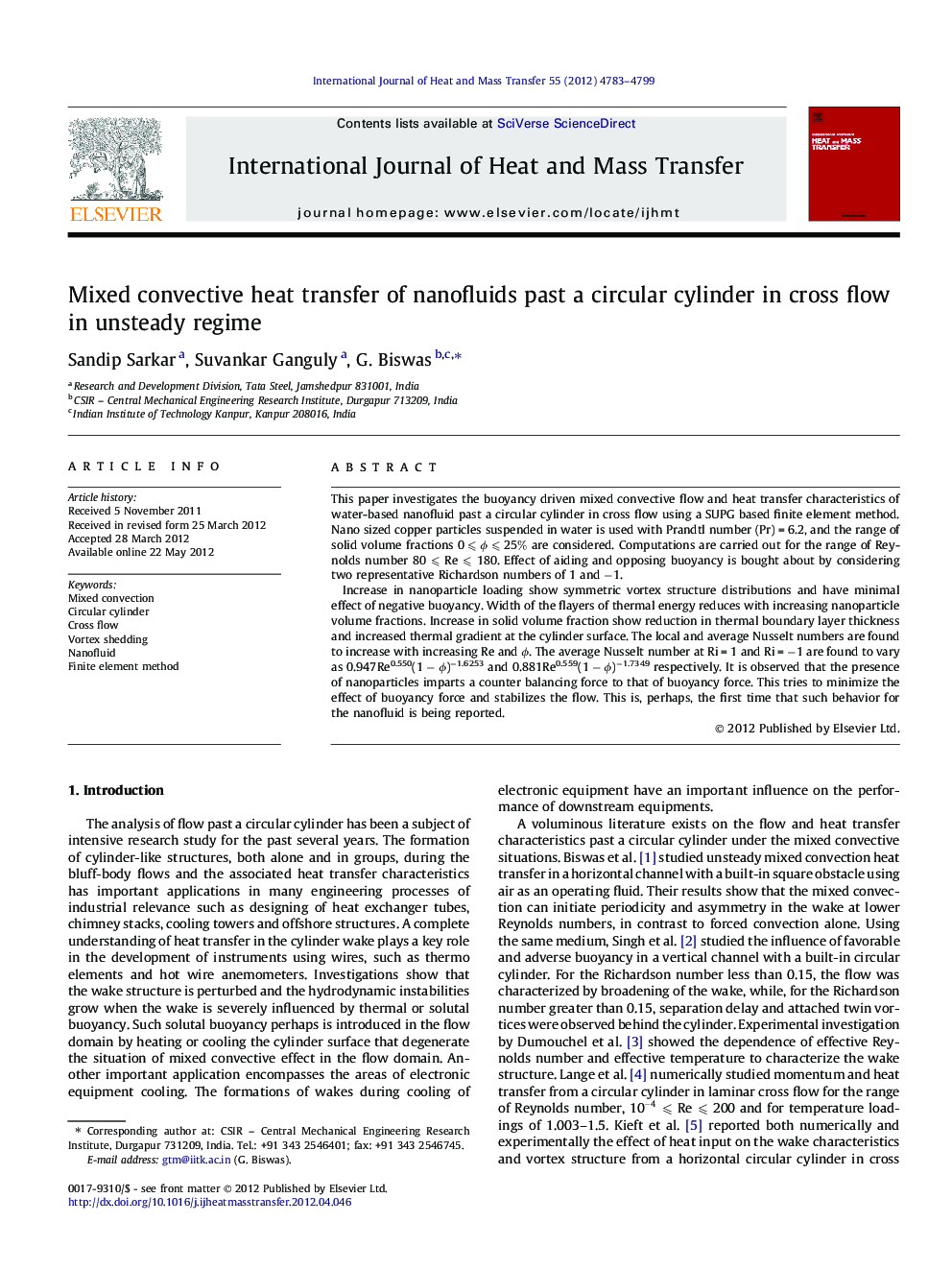| Article ID | Journal | Published Year | Pages | File Type |
|---|---|---|---|---|
| 659277 | International Journal of Heat and Mass Transfer | 2012 | 17 Pages |
Abstract
Increase in nanoparticle loading show symmetric vortex structure distributions and have minimal effect of negative buoyancy. Width of the flayers of thermal energy reduces with increasing nanoparticle volume fractions. Increase in solid volume fraction show reduction in thermal boundary layer thickness and increased thermal gradient at the cylinder surface. The local and average Nusselt numbers are found to increase with increasing Re and Ï. The average Nusselt number at Ri = 1 and Ri = â1 are found to vary as 0.947Re0.550(1 â Ï)â1.6253 and 0.881Re0.559(1 â Ï)â1.7349 respectively. It is observed that the presence of nanoparticles imparts a counter balancing force to that of buoyancy force. This tries to minimize the effect of buoyancy force and stabilizes the flow. This is, perhaps, the first time that such behavior for the nanofluid is being reported.
Related Topics
Physical Sciences and Engineering
Chemical Engineering
Fluid Flow and Transfer Processes
Authors
Sandip Sarkar, Suvankar Ganguly, G. Biswas,
